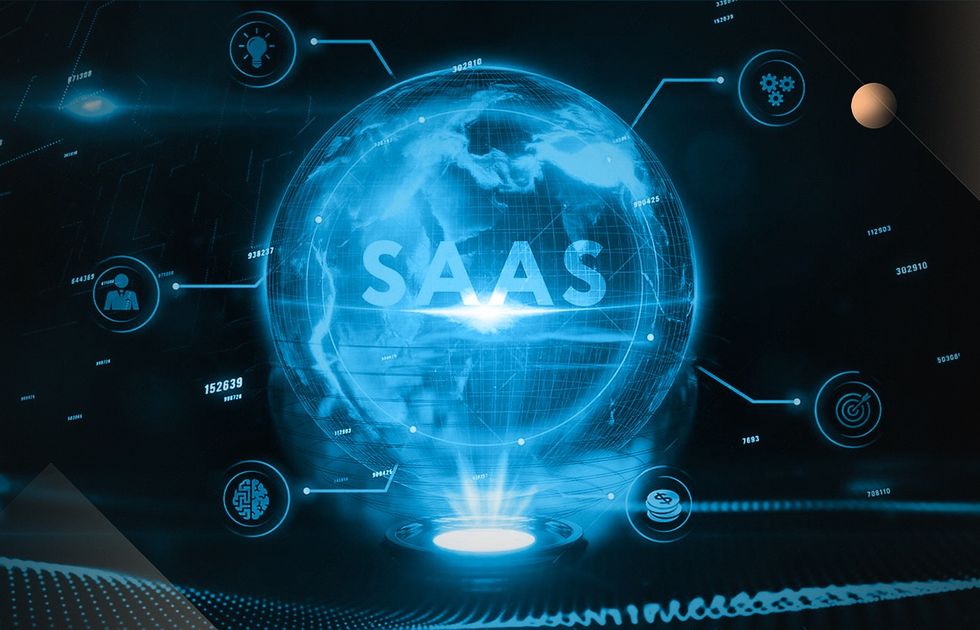The realm of Software-as-a-Service (SaaS) has become a thriving landscape, with startups striving to carve their niche in the digital domain. However, despite the immense potential and the allure of SaaS, the success rate of startups in this space remains an incredibly challenging terrain.
In fact, a study by McKinsey states that 90% of SaaS startups fail to achieve their target level of growth and profitability. In the same context, CB Insights found that, among twenty other grounds, the number one reason why startups cease to exist is the lack of market need.
And this is just the tip of the iceberg.
In this article, we delve into the factors influencing the success rate of SaaS startups, with a particular focus on the absence of a cohesive process tailored to the unique demands of building and launching a SaaS platform.
The SaaS Landscape
SaaS, as a business model, offers a compelling alternative to traditional software deployment. It provides users with the flexibility of accessing applications over the internet, eliminating the need for intricate installations and constant updates. The appeal of SaaS lies in its scalability, cost-effectiveness, and the ability to cater to diverse industries and user requirements.
Despite the promises embedded in the SaaS model, however, statistics reveal a challenging reality for business founders venturing into this space. Research indicates that the success rate of SaaS startups is notably lower compared to other sectors.
A myriad of factors contributes to this phenomenon, ranging from fierce competition and evolving market dynamics to the absence of a cohesive and specialized approach tailored to the intricacies of SaaS development.
- Intense Competition
The SaaS landscape is saturated with both established players and agile startups vying for attention. The sheer volume of competition makes it challenging for new entrants to stand out, as users are often spoiled for choice. The success of SaaS startups hinges on their ability to offer a unique value proposition and differentiate themselves in a crowded market.
Evolving Market Dynamics
The dynamics of the SaaS market are ever-changing, influenced by technological advancements, shifting consumer preferences, and global economic trends. Startups that fail to adapt swiftly to these changes may find themselves at a disadvantage, unable to meet evolving user expectations or capitalize on emerging opportunities.
- Lack of Specialized Cohesive Processes
One pivotal factor contributing to the lower success rate of SaaS startups is the absence of a cohesive and specialized development process tailored to the unique nature of SaaS applications. Unlike traditional software development, SaaS requires a distinct approach that integrates considerations for continuous deployment, scalability, and user experience.
The Need for a Specialized SaaS Development Process
A significant number of SaaS startups grapple with the challenge of adapting traditional software development methodologies to the SaaS model. The inadequacy of a one-size-fits-all approach becomes evident when startups encounter issues related to subscription models, recurring revenue, and the seamless delivery of updates.
- Subscription Models and Recurring Revenue
Unlike traditional software, where revenue is primarily generated through one-time purchases, SaaS relies on subscription models. Establishing a sustainable and scalable subscription model demands careful consideration of pricing strategies, value-added features, and customer retention efforts. Startups without a specialized approach may falter in devising effective subscription plans that align with market demands and user expectations.
- Continuous Deployment and Iterative Development
SaaS applications thrive on continuous deployment and iterative development. Frequent updates, bug fixes, and feature enhancements are integral to keeping pace with market demands and user feedback. A cohesive SaaS development process should prioritize agility, enabling startups to roll out updates seamlessly while ensuring minimal disruption to users.
- Scalability and Performance Optimization
Scalability is a critical aspect of SaaS success, especially as user bases expand. A specialized development process should account for the ability to scale infrastructure efficiently, optimizing performance to accommodate growing user loads without compromising user experience. Failure to address scalability issues can lead to downtime, sluggish performance, and, ultimately, user dissatisfaction.
- User-Centric Design and Experience
User experience is paramount in the SaaS landscape. A dedicated SaaS development process should incorporate user-centric design principles, ensuring that the application is intuitive, user-friendly, and aligned with the specific needs of the target audience. Startups that neglect the user experience may struggle to retain users in the face of more user-friendly alternatives.
The success rate of SaaS startups is undeniably influenced by a multitude of factors, but the absence of a cohesive and specialized development process tailored to the unique demands of SaaS applications stands out as a significant contributor.
As the SaaS landscape continues to evolve, startups must recognize the necessity of adopting a strategic and specialized approach that encompasses subscription models, continuous deployment, scalability, and user-centric design. By doing so, SaaS startups can navigate the challenges, differentiate themselves in a competitive market, and enhance their chances of achieving sustainable success in the dynamic world of Software-as-a-Service.
Ready to Unlock your SaaS Success with Expert Guidance?
SaaS Architects is a coaching firm that helps struggling and aspiring SaaS startup entrepreneurs successfully navigate the world of application development, marketing, and sales. Through over 20 years in the software scene, we’ve built hundreds of apps for clients across various industries, learning from every experience.
Now, we are on a mission to make SaaS success simple and accessible for everyone. Our goal is to provide you with thorough guidance– from understanding the technical side of software development to leading you towards a sustainable and profitable business.



